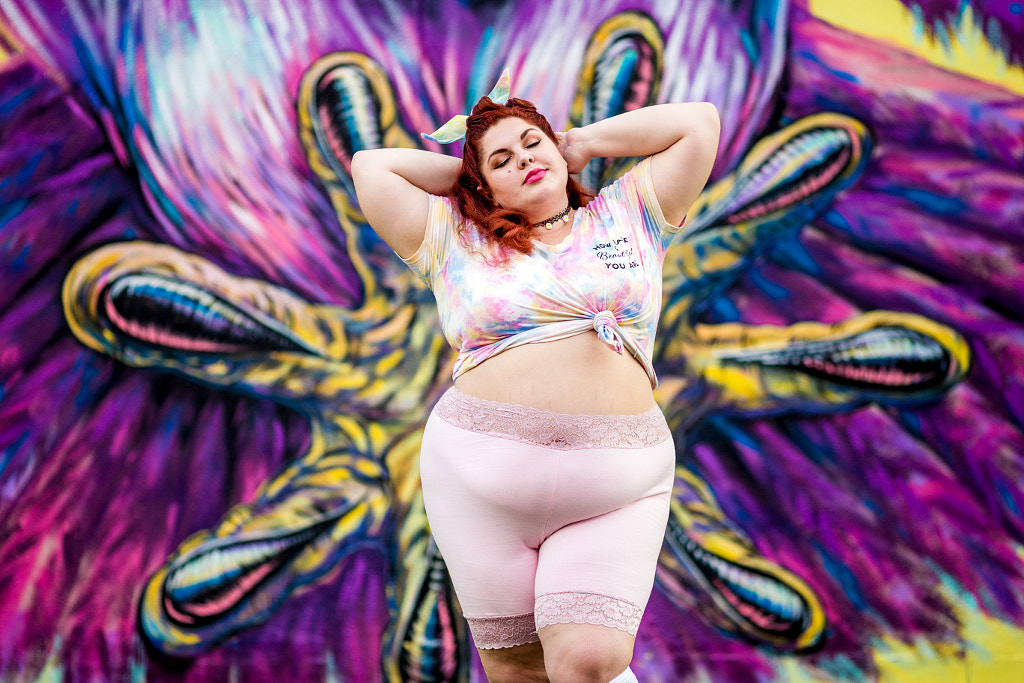They’re on track to be the best-educated generation yet. 49% get most of their news from social media. 49% work remotely at least some of the time. They’re 20% more likely than other generations to try a new product to see how it compares to their current brand. 75% agree that the world is at a tipping point in responding to climate change. 52% say that the #BlackLivesMatter movement has had a significant impact on their worldview.
We’re talking about Gen Z—people born between 1996 and 2010 and typically considered to be the “first generation of true digital natives.” They are not “millennials 2.0”—while they share some values with their older counterparts, they have distinct identities. And they also have significant buying power. In 2022, Licensing Contributors who listen to Gen Z have an advantage in creating evergreen content that will remain relevant and resonate with modern consumers. Here are some key takeaways to apply to your next commercial stock photoshoot.
Good advertising is inclusive advertising
According to the Pew Research Center, Gen Z is more racially and ethnically diverse than any generation that came before, with just barely half (52%) identifying as non-Hispanic white in the United States. 62% of this generation says that this increasing diversity is a good thing for society.
Furthermore, almost half (48%) agree that gay and lesbian couples being allowed to get married is a good thing for our society. 35% say they personally know someone who uses gender-neutral pronouns—far more than any previous generation.
Gen Z is defined, in part, by its diversity, so it’s a mistake to think of this generation as a monolith. While we will be addressing some of the trends and movements led by Gen Z, we also need to be careful not to generalize. Like any generation, Gen Z is made up of individuals.
For that reason, it’s essential for brands to visualize their customers’ real, lived experiences—across an array of ages, backgrounds, body types, abilities, and identities—in their marketing materials. Inclusion starts with who is behind and in front of the camera, so be sure to work with and cast people who represent the true diversity of your community.
Sustainability remains a top concern
According to The Deloitte Global 2022 Gen Z and Millennial Survey, now in its eleventh year, 64% of Gen Zers agreed that they would pay more to buy an environmentally sustainable product, while just 34% said they’d buy a cheaper option that was less sustainable. When it came to making changes in everyday life, the top actions respondents reported already taking included recycling, using recyclable products, buying locally-grown or organic food, and buying second-hand.
Brands are increasingly reevaluating their environmental footprint, making changes for the better, and encouraging their customers to do the same. One particularly creative example from recent years came in 2020, when Patagonia released shorts with tags that read “Vote the A**holes Out” in response to climate change deniers. They sold out worldwide. For tips on illustrating sustainability through photography, check out this guide.
Mental health is vital
Another finding from The Deloitte Global 2022 Gen Z and Millennial Survey: Gen Zers report feeling anxious and stressed frequently, with almost half (46%) saying that they’re stressed all or most of the time. What’s more, 46% feel burned out due to the demands and intensity of their working environments.
A separate report from Edelman, released in December of last year, reveals that among the percentage of Gen Zers who say the pandemic affected their attitudes, 78% say that they have created more time for mental health and self-care.
When illustrating mental health, skip the cliches and tell stories that resonate. That could mean documenting how you manage your own mental health, whether it’s through therapy and counseling, nurturing a healthy work/life balance, or participating in activities that you enjoy.
Workplaces are changing
Research from Deloitte also indicates that the cost of living is the top concern among members of both Gen Z and the millennial generation (climate change ranked second). Amid this financial anxiety, 43% of Gen Zers have taken on an additional paying job (part-time or full-time) beyond their primary job, and 33% who are currently working remotely say that it’s helped them save money. 75% of Gen Z respondents would prefer hybrid or remote ways of working.
Gen Z is also entrepreneurial: research from WP Engine and the Center for Generational Kinetics found that 62% had already started or plan to start a new business. Data from Microsoft further reveals that 48% have numerous side-hustles, and 91% of Gen Z entrepreneurs work unconventional hours. When planning shoots, consider looking beyond the office: maybe you follow a “day in the life” of a digital nomad, or perhaps you collaborate with a content creator to spotlight their vlogging channel.
Authentic content (still) reigns supreme
While millennials might have popularized the “aspirational” aesthetic of the early Instagram days, Gen Zers place a premium on authenticity. That’s partly why they value the advice of influencers—especially those who feel the most relatable—when deciding what products to buy. As noted by the team at 500px, they spend money and time engaging with technology, and they use online platforms like TikTok, YouTube, and Instagram to connect directly with brands.
Because they grew up online, Gen Zers are good at spotting content that feels fake or disingenuous—and they want brands to be more accountable and transparent. At the same time, they’re embracing a more “real” aesthetic in advertising. In 2021, for example, as part of the influential #AerieREAL campaign, the American Eagle brand Aerie celebrated the real voices of their new brand ambassadors, including TikTokers, a singer, and the wheelchair dance troupe the Rollettes. Customers were also invited to submit their own videos for a chance to be featured in the campaign.
Individuality goes a long way
As recently revealed in a trend report by Kantar, 70% of Gen Zers in the UK agree that it is extremely or very important to have the freedom to be unique, as compared to 61% of millennials. Makeup brands that champion experimental self-expression and embrace imperfections, Kantar’s Creative Strategy Team noted, were popular among Gen Z, as are eclectic second-hand finds.
Meanwhile, research from Pinterest suggests that Gen Z trends towards being more expressive or individualistic, with a hankering for new products and experiences. In January, their data revealed that Gen Zers purchased 80% more new products over the previous year than people from other generations.
Originality and personality count for a lot among members of this generation, so this is an invitation to be creative and bold. Consider highlighting your models’ unique traits and identities; approach your photoshoots as a collaboration, and stay open to their ideas and input.
Not on 500px yet? Click here to learn about Licensing with 500px.
The post How to engage Gen Z in your commercial portfolio appeared first on 500px.








